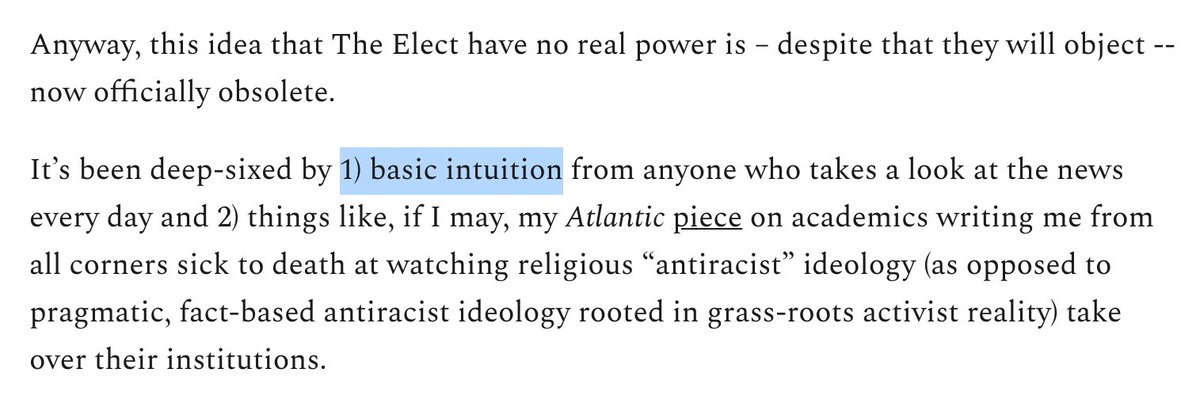
step 1: define your political opponent as bad, make up a term for them that underlines the imputed badness, but let the idea that the term is a neutral analytical one persist 

step 2: appeal to common sense/intuition/reasoning as fact (without any real work to show why the point is in fact intuitive or reasonable, let alone factual) 

step 3: cite your previous statements of your opinion as evidence for your current statements of the same opinion 

step 4a: use anecdotes shared with you by people sharing your opinion as data, while
step 4b: presenting views you dislike as supported only by anecdote

step 4b: presenting views you dislike as supported only by anecdote


step 5: cite friends who share the same opinions and support them using the exact same techniques as further evidence 

step 6a: re-describe actual, undeniable right-wing violence as a "distraction" and a matter of "optics",
step 6b: while re-describing your targets' actual, undeniable lack of violence as (therefore?) all the more insidious a threat -- an "infection"



step 6b: while re-describing your targets' actual, undeniable lack of violence as (therefore?) all the more insidious a threat -- an "infection"




step 7: return to anecdotes and examples that sound relevant and allow for rhetorical grandstanding... but in fact fail to answer the main question you've posed 







step 8: return to your pejoratively-labeled targets pretend they are answering your questions with words you put in their mouths -- rather than quoting or citing them speaking for themselves. Assume this ventriloquism proves what you've claimed about them. 



Conclusion: congratulations! You have successfully slain a left-wing dragon of your own concoction, while whitewashing actual, deadly, acts of right-wing violence. You have attained the status: James Lindsay
*targets, pretend
• • •
Missing some Tweet in this thread? You can try to
force a refresh






